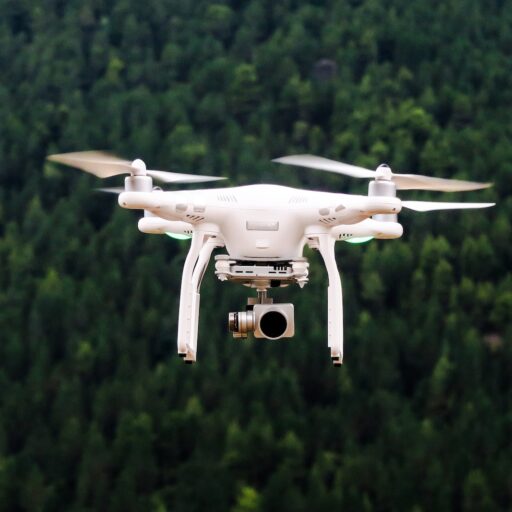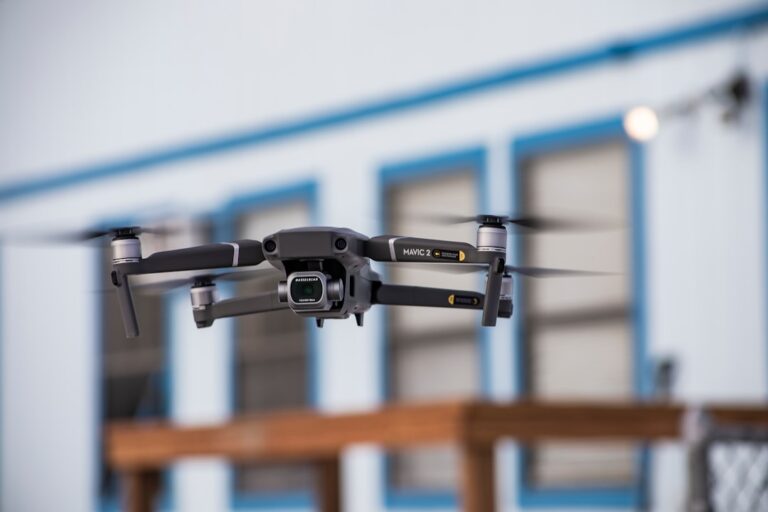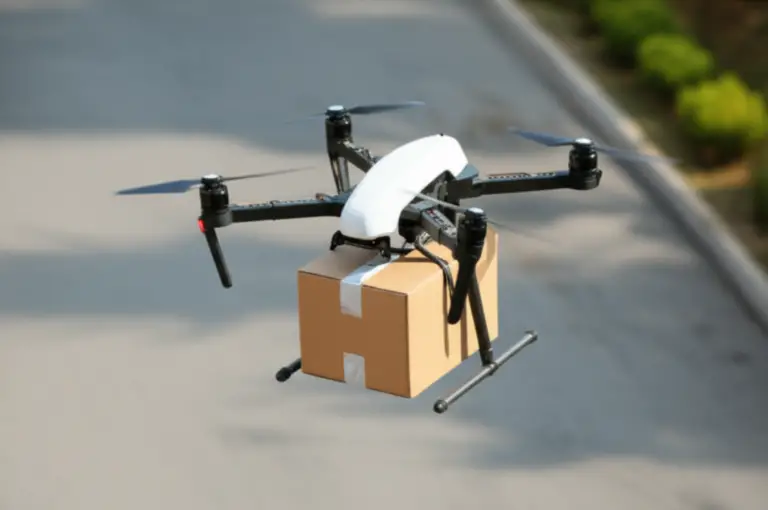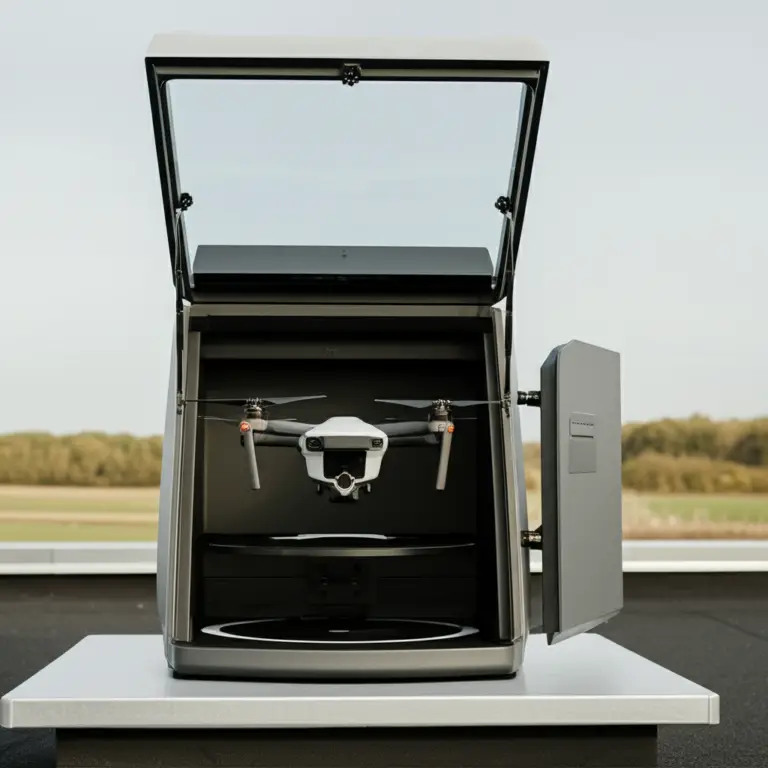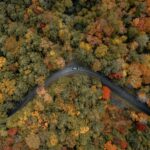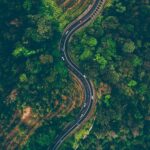Support our educational content for free when you purchase through links on our site. Learn more
14 Powerful Drone Applications Transforming Industries in 2025 🚀
Drones have soared far beyond their early novelty status, becoming indispensable tools across a dizzying array of industries. From precision agriculture that boosts crop yields with surgical accuracy, to life-saving post-disaster rescue missions, these flying marvels are rewriting the rules of efficiency, safety, and innovation. Did you know that drones can reduce inspection times by up to 80% compared to traditional methods? That’s just the tip of the propeller!
At Drone Brands™, we’ve piloted everything from rugged DJI Matrice 300 RTKs inspecting power lines to nimble Skydio 2+ drones capturing cinematic shots. In this article, we’ll take you on a high-flying tour of the 14 most common and game-changing drone applications across industries in 2025. Curious how drones help firefighters detect wildfires early or how delivery drones are reshaping logistics? Stick around — the sky’s the limit!
Key Takeaways
- Drones revolutionize industries by offering faster, safer, and more cost-effective solutions in agriculture, infrastructure, emergency response, and more.
- Precision agriculture drones optimize water and fertilizer use, increasing yields while reducing environmental impact.
- Industrial inspections with drones improve safety and efficiency, especially for power lines, bridges, and wind turbines.
- Emergency and disaster response drones provide rapid situational awareness and aid in rescue operations.
- Delivery drones are pioneering contactless logistics, reaching remote and urban areas alike.
- Filmmakers and urban planners harness drones for stunning visuals and smarter city designs.
- Regulatory compliance remains key—stay informed via resources like our Drone Laws and Regulations.
Ready to explore the best drones for your industry? Check out these top picks:
- Agricultural Drones: DJI Agras T30 | DJI Official
- Inspection Drones: DJI Matrice 300 RTK | DJI Official
- Delivery Drones: Zipline Official
Buckle up — your drone-powered future starts here!
Table of Contents
- ⚡️ Quick Tips and Facts About Drone Applications
- 🚀 The Evolution and Rise of Drones in Industry
- 1. 🌾 Precision Agriculture: Revolutionizing Farming with Drones
- 2. 🏗️ Infrastructure Inspection and Maintenance: Eyes in the Sky
- 3. 🔥 Forest Fire Detection and Wildfire Management
- 4. 🛠️ Power Line and Utility Inspection: Keeping the Lights On
- 5. 🚦 Traffic Monitoring and Urban Planning with Drones
- 6. 📦 Express Delivery and Logistics: The Future of Shipping
- 7. 🆘 Post-Disaster Rescue and Emergency Response
- 8. 🌍 Remote Sensing, Surveying, and Mapping: Precision from Above
- 9. 🌲 Environmental Conservation and Wildlife Monitoring
- 10. 🏞️ Street View and Cinematic Filming: Creativity Takes Flight
- 11. 📜 Land Rights Confirmation and Agricultural Insurance
- 12. 🏥 Healthcare and Medical Supply Delivery via Drones
- 13. 🏢 Real Estate and Construction Site Monitoring
- 14. 🛡️ Security Surveillance and Law Enforcement Applications
- Conclusion: The Sky’s the Limit for Drone Applications
- 🔗 Recommended Links for Drone Enthusiasts and Professionals
- ❓ Frequently Asked Questions About Drone Industry Uses
- 📚 Reference Links and Further Reading
⚡️ Quick Tips and Facts About Drone Applications
Welcome to the sky-high world of drones! At Drone Brands™, where we live and breathe aerial adventures, we’ve seen firsthand how drones have transformed industries from farming to filmmaking. Here are some quick facts to get you buzzing:
- ✅ Drones reduce inspection times by up to 80% compared to manual methods (source: JOUAV)
- ✅ Thermal imaging drones can detect forest fires early, saving lives and millions in damages
- ✅ Precision agriculture drones optimize water and fertilizer use, boosting yields and sustainability
- ✅ Delivery drones can reach remote areas inaccessible by road, revolutionizing logistics
- ✅ Law enforcement uses drones for crowd monitoring and accident investigations, enhancing public safety
- ✅ Drones equipped with LiDAR provide ultra-accurate 3D maps for construction and surveying
- ✅ Post-disaster rescue drones can deploy within minutes, providing critical aerial views when every second counts
Curious how these flying marvels work their magic across such diverse fields? Buckle up! We’re about to take you on a whirlwind tour of the most common and exciting drone applications in various industries. For more drone stats and trends, check out our detailed drone statistics article.
🚀 The Evolution and Rise of Drones in Industry
Drones started as military toys but quickly soared into commercial skies. Thanks to advances in battery tech, sensors, and AI, drones now do everything from crop scouting to cinematic filming. The global commercial drone market is expected to grow exponentially, with industries embracing drones for efficiency, safety, and cost savings.
Our pilots at Drone Brands™ remember when a drone flight meant battling limited flight times and clunky controls. Today, drones like the DJI Mavic 3 and Autel EVO Lite+ offer up to 45 minutes of flight, obstacle avoidance, and stunning 4K video — making them indispensable tools.
The question is: which industries benefit most? Let’s dive into the top sectors where drones are changing the game.
1. 🌾 Precision Agriculture: Revolutionizing Farming with Drones
Agriculture is arguably the biggest beneficiary of drone tech. From soil analysis to pest control, drones help farmers boost yields while conserving resources.
Key Uses in Agriculture
- Crop Health Monitoring: Multispectral and thermal cameras detect plant stress, diseases, and nutrient deficiencies early.
- Irrigation Management: Drones identify dry zones, optimizing water use.
- Spraying and Seeding: Some drones can spray fertilizers or pesticides precisely, reducing chemical use and environmental impact.
- Field Mapping: GPS-enabled drones create detailed maps for precision farming.
Why Farmers Love Drones
- Efficiency: Cover large fields quickly without tractors or manual scouting.
- Cost Savings: Reduce water, fertilizer, and pesticide use.
- Data-Driven Decisions: Real-time data helps optimize crop management.
Drone Models Popular in Agriculture
| Drone Model | Flight Time | Payload Capacity | Camera Type | Special Feature |
|---|---|---|---|---|
| DJI Agras T30 | 30 min | 30 kg | Multispectral + RGB | Agricultural spraying |
| Parrot Bluegrass | 25 min | 2 kg | Multispectral | Field mapping and analysis |
| senseFly eBee X | 90 min | 1.5 kg | RGB + Multispectral | Fixed-wing for large areas |
Our Take: The DJI Agras series is a beast for spraying tasks, while fixed-wing drones like senseFly eBee X excel in covering vast farmland efficiently.
For more on agricultural drones, visit our Drone Brand Guides.
2. 🏗️ Infrastructure Inspection and Maintenance: Eyes in the Sky
Drones are the unsung heroes keeping our bridges, power lines, and buildings safe without risking human lives.
Why Use Drones for Inspections?
- Access Hard-to-Reach Areas: Cliffs, tall towers, and power lines are no problem.
- Safety: No need for inspectors to climb dangerous structures.
- Speed: Inspections that took days now take hours.
- Data Quality: High-res images and thermal scans detect cracks, corrosion, and overheating.
Popular Inspection Applications
- Power Line and Solar Panel Inspection: Thermal cameras detect hotspots and faults.
- Bridge and Building Structural Checks: Identify cracks and material degradation.
- Wind Turbine Blades: Inspect for damage without shutting down turbines.
Recommended Drones for Inspection
| Drone Model | Flight Time | Camera Type | Special Features |
|---|---|---|---|
| DJI Matrice 300 RTK | 55 min | Thermal + RGB | RTK positioning, rugged design |
| Skydio 2+ | 27 min | 4K RGB | Autonomous obstacle avoidance |
| Parrot Anafi USA | 32 min | Thermal + Zoom | Lightweight, zoom capabilities |
Pro Tip: The DJI Matrice 300 RTK is our go-to for industrial inspections due to its endurance and sensor versatility.
3. 🔥 Forest Fire Detection and Wildfire Management
When wildfires rage, drones become firefighters’ eyes in the sky, spotting flames early and guiding ground crews.
How Drones Help
- Early Detection: Thermal sensors detect hotspots before visible flames appear.
- Real-Time Data: Live feeds help coordinate firefighting efforts.
- Safety: Keep firefighters out of harm’s way by scouting dangerous zones.
- Damage Assessment: Post-fire surveys help plan recovery.
Drone Features for Firefighting
- Thermal infrared cameras
- Long flight times for extended monitoring
- Robust build for harsh conditions
Our Experience: We’ve deployed DJI Matrice 300 RTK drones equipped with FLIR thermal cameras during wildfire drills — the real-time data was a game-changer for situational awareness.
4. 🛠️ Power Line and Utility Inspection: Keeping the Lights On
Power grids are sprawling and complex. Drones inspect lines, poles, and substations faster and safer than ever.
Benefits of Drone Inspections
- Detect damaged insulators, corrosion, and vegetation encroachment.
- Reduce outage times by early fault detection.
- Minimize manual labor and helicopter inspections.
Leading Drones in Utility Inspection
| Drone Model | Flight Time | Camera Type | Range | Notes |
|---|---|---|---|---|
| JOUAV CW Series | Up to 8 hrs | HD + GPS | 100 km radio | Fixed-wing endurance champion |
| DJI Matrice 300 RTK | 55 min | Thermal + RGB | 15 km | Versatile, rugged |
Quote from JOUAV: “UAVs have realized electronic, information, and intelligent inspections, improving power line inspection efficiency and reliability.” (source)
5. 🚦 Traffic Monitoring and Urban Planning with Drones
Traffic jams and urban sprawl? Drones help cities monitor flow, enforce laws, and plan smarter roads.
Drone Advantages in Traffic Management
- Real-time traffic flow monitoring
- Incident detection and accident investigation
- Crowd control during events
- Data for urban planners to optimize infrastructure
Popular Drone Features for Traffic
- High-res zoom cameras
- Stable hovering for long periods
- Night vision for 24/7 monitoring
Our Story: During a city marathon, our Skydio 2+ drone provided live aerial views to organizers, helping reroute traffic and ensure safety.
6. 📦 Express Delivery and Logistics: The Future of Shipping
Imagine ordering a gadget and having it arrive in minutes by drone! Delivery drones are already buzzing in remote and urban areas.
Key Benefits
- Reach remote or traffic-jammed areas quickly
- Reduce delivery costs and carbon footprint
- Enable contactless delivery, crucial during pandemics
Leading Delivery Drone Models
| Drone Model | Flight Time | Payload Capacity | Range | Use Case |
|---|---|---|---|---|
| Zipline Drone | 30 min | 1.75 kg | 80 km | Medical supply delivery |
| Wing (Alphabet) Drone | 30 min | 1.5 kg | 10 km | Urban package delivery |
Note: Regulatory hurdles remain a challenge, but pilot programs worldwide are paving the way.
7. 🆘 Post-Disaster Rescue and Emergency Response
When disaster strikes, drones are first responders in the sky.
How Drones Save Lives
- Rapid aerial surveys of disaster zones
- Locate survivors using thermal imaging
- Deliver emergency supplies to inaccessible areas
- Provide communication relays when networks fail
Drone Features for Rescue
- Quick deployment (takeoff to flight in under 10 minutes)
- Long-range and endurance
- Real-time video and thermal sensors
JOUAV’s Insight: “The drone moves quickly, taking off to landing in only 7 minutes, covering 100,000 square kilometers of aerial photography, crucial for post-disaster rescue.” (source)
8. 🌍 Remote Sensing, Surveying, and Mapping: Precision from Above
Surveyors and geologists love drones for their speed and accuracy.
Advantages Over Traditional Methods
- Faster data collection
- Higher resolution and accuracy
- Safer in hazardous terrain
- Cost-effective for large areas
Technologies Used
- LiDAR sensors
- Multispectral and RGB cameras
- GPS and RTK for precise positioning
Popular Models for Surveying
| Drone Model | Flight Time | Sensor Types | Special Features |
|---|---|---|---|
| DJI Phantom 4 RTK | 30 min | RGB + RTK GPS | Centimeter-level accuracy |
| senseFly eBee X | 90 min | RGB + Multispectral | Fixed-wing for large surveys |
9. 🌲 Environmental Conservation and Wildlife Monitoring
Drones help protect our planet by monitoring ecosystems and wildlife without disturbing them.
Applications
- Tracking endangered species
- Monitoring deforestation and illegal logging
- Assessing water quality and pollution
- Anti-poaching surveillance
Benefits
- Non-invasive observation
- Access to remote habitats
- Real-time data for conservationists
Our Experience: We flew DJI Mavic 3 drones over protected reserves to track elephant herds, providing vital data to rangers.
10. 🏞️ Street View and Cinematic Filming: Creativity Takes Flight
Drones have revolutionized visual storytelling, bringing breathtaking aerial shots to movies, commercials, and virtual tours.
Why Filmmakers Choose Drones
- Smooth, dynamic aerial shots
- Cost-effective compared to helicopters
- Real-time HD transmission for directors
- Access to previously unreachable angles
Popular Filming Drones
| Drone Model | Flight Time | Camera Specs | Special Features |
|---|---|---|---|
| DJI Inspire 2 | 27 min | 5.2K Cinema Camera | Professional-grade video |
| DJI Mavic 3 Cine | 46 min | 5.1K Hasselblad Camera | Lightweight, long endurance |
Quote: “UAVs enable chasing cars, raising and lowering shots, and even close horse stomach shots — all while slashing shooting costs.” (source)
11. 📜 Land Rights Confirmation and Agricultural Insurance
Drones bring precision and speed to land surveying and insurance claims.
Land Rights Confirmation
- Aerial photos provide accurate land boundaries
- Reduces disputes and paperwork
- Faster than traditional surveying
Agricultural Insurance
- Assess crop damage after storms or droughts
- Monitor crop growth for risk assessment
- Expedite claims processing
Benefits: Saves time, reduces fraud, and supports farmers with timely payouts.
12. 🏥 Healthcare and Medical Supply Delivery via Drones
Medical drones are lifesavers, literally.
Use Cases
- Transporting blood, vaccines, and medicines to remote clinics
- Delivering emergency supplies during crises
- Reducing delivery times in urban areas
Leading Medical Drone Programs
- Zipline: Operates in Africa and the US, delivering blood and vaccines
- Wingcopter: Focuses on rural medical deliveries worldwide
Impact: Faster, reliable medical logistics saving countless lives.
13. 🏢 Real Estate and Construction Site Monitoring
Drones provide real-time progress updates and marketing visuals for real estate and construction.
Benefits
- Monitor site progress and safety compliance
- Create 3D models and maps for planning
- Capture stunning aerial photos for listings
Popular Drones
- DJI Phantom 4 Pro
- DJI Mavic 3 Enterprise
14. 🛡️ Security Surveillance and Law Enforcement Applications
From patrolling borders to monitoring crowds, drones enhance security operations.
Applications
- Routine patrols in remote areas
- Crowd monitoring at events
- Accident and crime scene documentation
- Search for missing persons
Advantages
- Real-time intelligence
- Cost-effective compared to helicopters
- Safer for officers
For more on legal aspects, check our Drone Laws and Regulations section.
Conclusion: The Sky’s the Limit for Drone Applications
Wow, what a flight through the incredible world of drone applications! From precision agriculture to post-disaster rescue, and from cinematic filming to power line inspections, drones have truly become indispensable tools across industries. Our journey uncovered how these flying marvels boost efficiency, enhance safety, reduce costs, and open new frontiers of innovation.
If you’re wondering whether drones are just a fad or a serious business asset, the answer is clear: drones are here to stay and will only become more integrated into everyday operations. Whether you’re a farmer looking to optimize yields, a city planner monitoring traffic, or a filmmaker chasing that perfect aerial shot, there’s a drone solution tailored for you.
We also saw that while drones come with challenges—like regulatory hurdles and initial investment costs—the benefits overwhelmingly outweigh the drawbacks. Models like the DJI Matrice 300 RTK, DJI Agras T30, and Zipline’s delivery drones showcase how specialized drones meet specific industry needs with precision and reliability.
Remember the question we teased earlier: How do drones manage to serve such diverse roles so effectively? The secret lies in their versatile sensor payloads, autonomous flight capabilities, and real-time data transmission—making them the Swiss Army knives of the sky.
Ready to take your drone adventure to the next level? Explore our recommended drones and resources below to get started!
Recommended Links for Drone Enthusiasts and Professionals
Here’s where you can check out or shop some of the top drones and gear mentioned in this article:
- DJI Matrice 300 RTK:
Amazon | DJI Official Website - DJI Agras T30 (Agricultural Drone):
Amazon | DJI Official Website - Skydio 2+ (Inspection & Filming Drone):
Amazon | Skydio Official Website - Parrot Anafi USA (Thermal Inspection Drone):
Amazon | Parrot Official Website - Zipline Delivery Drone:
Zipline Official Website - senseFly eBee X (Surveying Drone):
senseFly Official Website
Books for Further Reading:
- Drones for Dummies by Mark LaFay — Amazon Link
- Commercial Drone Professional Guide by Adam Juniper — Amazon Link
- Precision Agriculture Technology for Crop Farming by Qin Zhang — Amazon Link
❓ Frequently Asked Questions About Drone Industry Uses
What industries are most likely to adopt drone technology in the near future?
The industries leading drone adoption include agriculture, construction, energy, logistics, and public safety. Agriculture benefits from precision farming; construction uses drones for site monitoring; energy companies inspect power lines and solar farms; logistics firms explore drone deliveries; and law enforcement leverages drones for surveillance and emergency response. The trend is clear: any sector requiring aerial data, inspection, or delivery will increasingly adopt drones. For detailed regulatory insights, visit our Drone Laws and Regulations category.
How are drones being used in the construction industry to improve efficiency and safety?
Drones provide real-time aerial views of construction sites, enabling project managers to monitor progress, detect safety hazards, and create 3D models for planning. They reduce the need for workers to climb dangerous scaffolding or inspect hard-to-reach areas manually. By catching issues early, drones help avoid costly delays and accidents. Models like the DJI Phantom 4 Pro and Mavic 3 Enterprise are popular for their high-resolution cameras and ease of deployment.
What role do drones play in environmental monitoring and conservation efforts?
Drones enable non-invasive, real-time monitoring of wildlife populations, deforestation, water quality, and illegal activities like poaching or logging. Equipped with multispectral and thermal sensors, drones provide data that helps conservationists make informed decisions and respond quickly to environmental threats. Their ability to access remote or hazardous areas makes them invaluable for ecosystem management.
Can drones be used for search and rescue operations, and if so, how effective are they?
Absolutely! Drones equipped with thermal cameras and high-resolution sensors can quickly scan large areas, locate missing persons by heat signatures, and deliver emergency supplies. Their rapid deployment and ability to fly where humans cannot make them highly effective in disaster zones or wilderness rescues. Programs using drones have demonstrated significant improvements in search times and safety for rescue teams.
How are drones being utilized in the film and photography industry to capture unique footage?
Drones have revolutionized visual storytelling by providing dynamic, cinematic aerial shots that were once only possible with helicopters or cranes. They offer smooth, flexible camera movements, real-time HD transmission, and access to previously unreachable angles. Filmmakers use drones like the DJI Inspire 2 and Mavic 3 Cine to create stunning visuals at a fraction of the cost.
What are the benefits of using drones in agriculture, such as crop monitoring and precision farming?
Drones enhance agriculture by enabling precise monitoring of crop health, irrigation needs, and pest infestations through multispectral imaging. They reduce resource use by targeting fertilizer and pesticide application, increase yields, and speed up data collection. This leads to cost savings, sustainability, and better decision-making for farmers.
Are drones being used in disaster response and recovery efforts, and what are the advantages of using them in these situations?
Yes, drones are critical in disaster response for rapid aerial assessment, locating survivors, and delivering supplies. Their ability to fly over dangerous or inaccessible areas ensures the safety of rescue teams. Real-time data helps coordinate efforts, prioritize resources, and speed recovery. The quick deployment time and comprehensive coverage make drones indispensable in emergencies.
How do regulations impact the commercial use of drones across industries?
Regulations vary by country but generally focus on safety, privacy, and airspace management. Operators often need licenses, must follow no-fly zones, and adhere to altitude and line-of-sight rules. While regulations can slow adoption, they also ensure responsible drone use. Staying updated via resources like our Drone Laws and Regulations helps businesses navigate compliance smoothly.
📚 Reference Links and Further Reading
- JOUAV Blog on Drone Applications: https://www.jouav.com/blog/applications-of-drones.html
- Inspired Flight: Top 10 Commercial Uses for Drones: https://www.inspiredflight.com/news/top-10-commercial-uses-for-drones.php
- Learn about Commercial Drone Use in 2025 | Droneii: https://droneii.com/commercial-drone-use-in-2024
- DJI Official Website: https://www.dji.com
- Skydio Official Website: https://www.skydio.com
- Parrot Official Website: https://www.parrot.com
- Zipline Official Website: https://flyzipline.com
- senseFly Official Website: https://www.sensefly.com
For more expert insights and the latest drone industry news, visit our Drone Industry News and Drone Business Opportunities sections.
Ready to take off with drones? The sky’s the limit! 🚁✨
